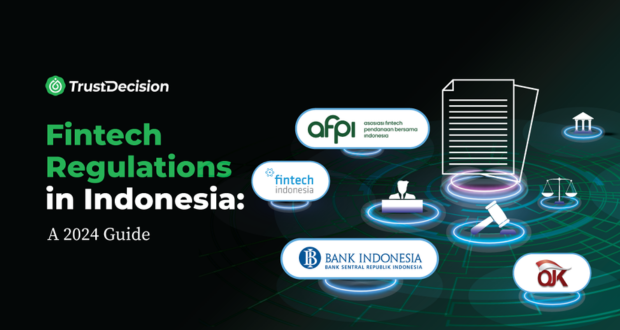In this article, we venture into the world of fintech regulation within the APAC region, offering insights into the nuances, challenges, and opportunities it presents in 2023 and beyond.
Regulatory Compliance in the APAC Region
Within the APAC region, a rich tapestry of regulatory frameworks shapes the fintech landscape.
These frameworks are meticulously designed to balance encouraging innovation and safeguarding financial systems.
They encompass a spectrum of models, each with its unique set of rules and objectives.
Central to this regulatory landscape are key bodies vested with the responsibility of shaping fintech policy and oversight. These include central banks, financial regulatory authorities, and specialized agencies dedicated to fintech and digital finance. These entities play pivotal roles in formulating guidelines, issuing licenses, and ensuring compliance within the fintech ecosystem.
Understanding the key regulatory bodies responsible for oversight is vital to navigating the intricate APAC fintech regulatory landscape. These institutions are pivotal in shaping the fintech ecosystem, defining rules, and ensuring compliance.
- Singapore: Renowned as a fintech hub, Singapore boasts a sophisticated regulatory environment. The Monetary Authority of Singapore (MAS) takes the lead in overseeing financial stability and growth. MAS administers licenses for financial institutions, including fintech firms, and operates an innovation hub to facilitate collaboration within the fintech ecosystem. The city-state's proactive approach to fintech regulation has attracted numerous fintech startups and companies.
- Hong Kong: As a prominent global financial center, Hong Kong has its own regulatory framework for fintech. The Securities and Futures Commission (SFC) is a key player regulating securities and futures markets. Hong Kong introduced the regulatory sandbox to nurture fintech innovation while upholding market integrity. Fintech companies seeking to operate in Hong Kong must navigate the regulatory landscape governed by SFC.
- India: India's fintech sector has witnessed tremendous growth and regulatory evolution. The Reserve Bank of India (RBI) holds authority over monetary policy and banking regulation as the central bank. RBI has introduced guidelines and licenses for fintech firms, particularly those involved in peer-to-peer lending platforms. Recent developments include issuing digital banking licenses and opening doors for fintech companies to enter the banking sector.
- Mainland China: Mainland China, a fintech giant, has a rapidly evolving regulatory landscape. The China Banking and Insurance Regulatory Commission (CBIRC) oversees banking and insurance activities and is crucial in regulating fintech giants and their financial services. Despite regulatory pressures, China continues fostering fintech innovation, especially in digital payments, blockchain, and artificial intelligence. Foreign fintech firms entering the Chinese market must navigate stringent data localization and partnership requirements while complying with evolving regulatory frameworks.
- Malaysia: Malaysia's fintech regulatory landscape reflects a forward-thinking approach. Regulatory bodies such as the Central Bank of Malaysia or Bank Negara Malaysia (BNM) and the Securities Commission Malaysia (SC) have introduced initiatives like regulatory sandboxes and fintech-friendly policies to encourage innovation while ensuring compliance with established regulations. Fintech companies entering Malaysia can benefit from a supportive ecosystem that balances innovation and regulatory stability.
- Philippines: In the Philippines, the Bangko Sentral ng Pilipinas (BSP), the central bank, takes a central role in fintech regulation. It promotes digital payments, e-wallets, and other fintech services while establishing guidelines to safeguard consumers' interests and data security.
- Indonesia: Indonesia, another Southeast Asian nation, recognizes fintech's potential to enhance financial inclusion. The Financial Services Authority of Indonesia (OJK) oversees fintech regulation focusing on digital lending, peer-to-peer lending, and digital payment providers. Fintech companies operating in Indonesia must adhere to OJK's licensing requirements and consumer protection guidelines.
- Vietnam: Vietnam's fintech sector is rapidly evolving, with the State Bank of Vietnam (SBV) actively shaping the landscape. SBV has introduced regulations for digital payments, e-wallets, and peer-to-peer lending platforms. Fintech companies considering Vietnam must navigate these regulatory requirements while tapping into the country's growing appetite for digital financial services.
- Thailand: In Thailand, the Bank of Thailand (BOT) plays a pivotal role in fintech regulation. BOT has introduced initiatives to promote digital payments and financial innovation while ensuring compliance with anti-money laundering (AML) and cybersecurity measures. Fintech companies looking to operate in Thailand should acquaint themselves with BOT's regulatory framework.
- Pakistan: Pakistan's fintech sector is emerging as a vibrant ecosystem. The State Bank of Pakistan (SBP) is the central regulatory authority overseeing financial institutions and fintech companies. SBP has introduced regulatory guidelines to foster digital payments, digital banking, and branchless banking services. Fintech firms seeking to establish a presence in Pakistan must adhere to SBP's regulations and work within the evolving fintech landscape.
Diversity in FinTech Regulations
One of the defining features of the APAC region is the remarkably diverse regulatory approaches to fintech, reflecting the influence of diverse factors such as historical contexts, economic development levels, and government priorities.
The diverse regulatory landscape reflects varying approaches to fintech oversight. They are most evident in India, Southeast Asia (including Singapore, Malaysia, Thailand, and Indonesia), Pakistan and Mainland China.
Impact of Cultural and Economic Factors
Cultural and economic factors significantly influence APAC fintech regulations. Cultural values, such as a preference for saving and investing, shape the adoption of fintech services. Economic disparities across the region impact the regulatory approach, with developed economies favouring innovation and emerging markets focusing on financial inclusion.
In countries like Japan and South Korea, where saving is a cultural norm, fintech innovation targets investment and wealth management. Contrastingly, countries with large unbanked populations, like Indonesia and the Philippines, prioritize regulations that promote access to digital financial services.
Furthermore, the economic disparities prevalent across the region significantly impact regulatory approaches. Developed economies tend to favor innovation and technological advancement in their fintech regulations, as seen in Singapore and Hong Kong.
In contrast, emerging markets concentrate on financial inclusion and ensuring that fintech solutions extend to underserved populations, a trend observed in countries like Malaysia, Thailand, and Pakistan.
The Road Ahead: Navigating Opportunities and Challenges
The APAC fintech regulatory landscape is ever-evolving, presenting businesses with both opportunities and challenges. Firms must stay informed about regulatory developments, adapt to local requirements, and foster collaborative relationships with regulatory bodies to succeed. With innovation at its core, the APAC fintech ecosystem promises growth, helping businesses to navigate the complexities of regulation effectively.

-%2520Deciphering%2520And%2520Navigating%2520The%2520Complex%2520Landscape.jpeg)












